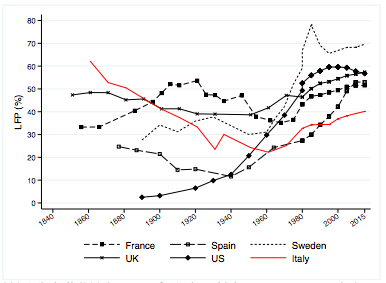Feb 17 2018
Women Lean Leaders | Cécile Roche, Marie-Pia Ignace & Monica Rossi | Planet Lean
“Lex Schroeder: What value, if any, does gender equity in the workplace hold for the potential of lean thinking and practice?
Cécile Roche: As it has been well observed by neurobiologists like Catherine Vidal, it is impossible to guess whether a brain belongs to a man or a woman…”
Sourced from Planet Lean
Michel Baudin‘s comments: I was encouraged by this opening sentence by Cécile Roche, who runs the Lean group at Thales, and whom I have had the privilege to serve on occasion. As I once heard Gloria Steinem say, there are very few jobs that require men’s or women’s gender-specific equipment, and the rest should be open to everybody.
Professional qualities — including leadership, creativity, rigor, perseverance, ability to learn and analyze, emotional intelligence, etc. — are not gender-specific. They are individual, and societies that discriminate against women are simply depriving themselves of the talents of half their members.

When I think of women who have distinguished themselves in politics, from Catherine the Great to Angela Merkel, in business like Meg Whitman or Mary Barra, in science, from Émilie du Chatelet to Maryam Mirzakhani, or in the military, like Laskarina Bouboulina, I see individuals whose gender is irrelevant to their achievements.
Marie-Pia Ignace, whose first name is misspelled in the by-line, points out that there is nothing gender-specific in any element of the Toyota Production System. It’s literally true and it’s helpful that it is but, in historical context, its creators were like the founding fathers of the US, who extolled equality while holding slaves. In the context of 20th-century Japan, I don’t believe that the Toyodas or Taiichi Ohno were giving any thought to professional opportunities for women. If gender equity had been a concern of theirs, we would know it by now.
I wondered where Monica Rossi got the idea that “Twenty or thirty years ago, most women didn’t have jobs.” Assuming she meant in Italy, I checked out Giulia Mancini’s exhaustive study of Women’s labor force participation in Italy, 1861-2016, from which I excerpted the following chart:

The proportion of women in the active population of Italy went from 33% in 1980 to 41% today. So it’s true that the majority of Italian women didn’t have jobs 30 years ago but it’s still true today, and Italy employs fewer of its women than any of the other countries on the chart, where it has not massively changed since 1980.
#GenderEquity, #TPS, #Toyota, #Lean



February 18, 2018 @ 1:56 pm
Rather than discuss gender equity in terms of the advantages of men over women or visa-versa. I have found it is more constructive and less divisive to discuss the Yang and Yin characteristics of the human condition we all possess.
I think the concept of Yang and Yin is one of the fundamental differences between Eastern & Western thought. In the West we think in terms of Yang OR Yin, hard or soft, these being two separate things. Eastern thought is that like two sides of the same circle they exist together, you have Yang & Yin, hard & soft. — This is a central theme of Chinese Taoism – the water* way. Water, dependent upon its situation, is hard & soft, solid & fluid, fluid & vapours & can adapt to any shape required. “Be water my friend.” Bruce Lee. Kung Fu is the martial art of Taoism. I think this partly explains the longevity of the Chinese Civilisation. It is interesting to note that China over the last three thousand years and has outlasted all the previous empires that would have been considered their equals in ancient times. A Chinese leader can be both communist and capitalist, only westerners would see any contradiction. The Samurai code is an extension of this thinking. We do not only have one style. The Samurai code allows us to adapt our style to suit any situation.
Help and support the weak. — Be equal to the strong. — Crush the wicked.
Now we can talk to different individuals or address different situations, and change our style to the most appropriate and effective one, irrespective of our gender.
*Leaders must also ensure their organisations learn to follow the ‘Water’ model. The key is to listen to the audible and ‘silent’ voices of customers and the market, and develop products, services and experiences that will be the best fit to satisfy their physical and emotional needs and wants. Long term survival is assured if they can do this more effectively than any existing or future competition.